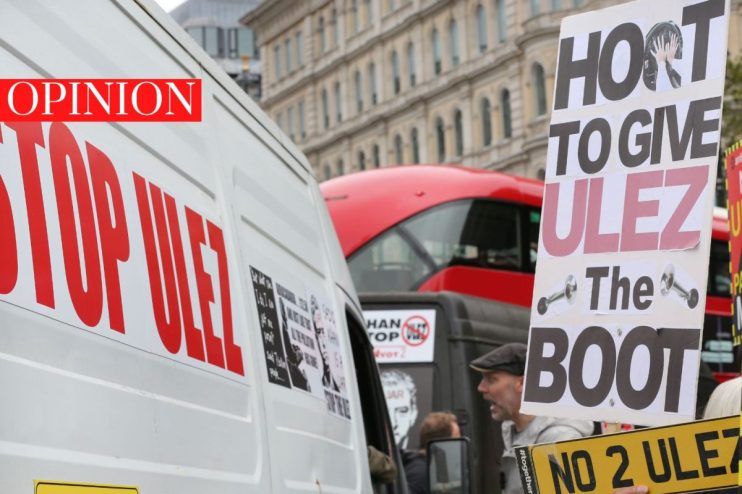Have a problem with Ulez? Then give London the means to raise its own revenue

After much political wrangling and a High Court ruling, the expansion of the Ultra-Low Emission Zone will go-ahead next week as planned.
The fallout from the recent Uxbridge by-election demonstrates how divisive the decision to extend the scheme across London now has proven, not only among voters but also the main political parties.
As we approach a Mayoral election next May, critics will no doubt continue to condemn the move for hitting hard-working families amid a cost-of-living crisis. On the other hand, City Hall will – rightly – highlight the role it plays in making London’s air cleaner, saving lives and helping the city become a more attractive place to live, work and visit.
It remains to be seen how much of a wedge issue the Ulez expansion will actually be once it finally comes into effect. Official figures indicate that 90 per cent of cars driving regularly in outer London are Ulez-compliant. If this analysis is correct, anger towards the scheme may dissipate by next May. And, of course, the Mayor last month addressed some concerns by extending the scrappage scheme significantly to help businesses and households make the transition. Around £108m of the overall £160m pot is still available to claim.
It is often forgotten but Boris Johnson originally set out plans to introduce the Ulez during his time as Mayor. Political will to tackle environmental issues at a national level now seems to be wavering but all parties should acknowledge that poor air quality is cutting short the lives of 4,000 Londoners every year, with the impacts being felt unevenly across different communities.
But in order to extend the Ulez scrappage scheme, the Mayor was forced to dip into City Hall’s reserves after the government turned a deaf ear to his requests for central funding at a similar level provided to other cities in the UK implementing clean air zones. London’s inability to raise or retain a significant amount of revenue remains a fundamental constraint on the capital’s autonomy and potential.
The capital’s begging bowl relationship with Whitehall stands in stark contrast to other global cities and is unsustainable. The Mayor and London’s boroughs retain only a tiny proportion of the taxes raised here – around seven percent. In contrast, the equivalent figure in New York is more than 50 per cent.
Over a decade ago – back in the distant days when Boris was Mayor – the London Finance Commission was tasked with looking look at how this relationship should change. Its recommendations should now be implemented to give greater fiscal devolution to London government so that resources can be focused where they will deliver the biggest impact. And with great power comes responsibility – over transport, skills, employment, housing, planning and economic development. These decisions are better made locally, working with the capital’s businesses and residents.
Giving London more power to retain revenues is critical to ensure a sustainable future for the capital, while also delivering better bang for our buck. Concerningly the rhetoric from Westminster seems to be going into reverse. National politicians of all persuasions should at the very least get out of the way and let cities deliver on their own visions, rather than weighing in on devolved decisions such as the expansion of the Ulez.
Londoners have elected a Mayor to take these decisions, and if they don’t like them they’ll have an opportunity at the ballot box next May to make their opinions clear. Rather than over-reaching,
Whitehall should respect devolved democracy and give the Mayor the powers he needs to drive growth locally. Now that really would be a breath of fresh air.
